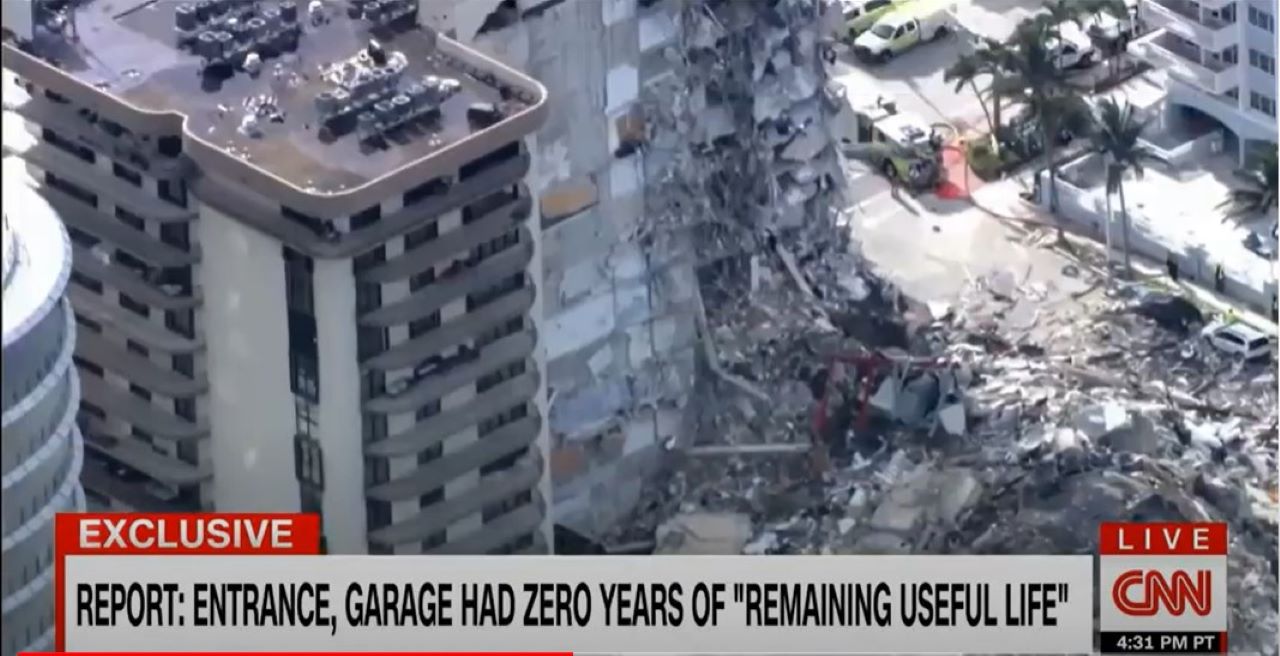We were shocked, along with the rest of the world, by the collapse of our client property, Champlain Towers South Condominium Association, in Surfside, FL on June 24, 2021. Our hearts broke for the families and friends of the 98 people who lost their lives in this unprecedented disaster. Although the underlying causes of the tragedy have yet to be determined, we know, based on our March 2020 Reserve Study, that the towers were 40 years old and the Association was significantly “underfunded”. Owners were facing a huge “Special Assessment” for repairs & replacements which would have been predictable decades in advance of the collapse.
Champlain Towers South was an extremely serious, and thankfully rare, example of the short-sighted decisions Boardmembers and Owners are capable of making. Sadly, there were clues all along the way. We owe it to those who lost their lives, and their homes, to learn the important lessons that will prevent such a tragedy from ever happening again.
Adequate Reserve Funding can be portrayed as an ongoing race between two opposing forces, where the pace of setting aside funds for repairs & replacements (financial health) should match the pace of deterioration (physical health). If an Association is not keeping up financially, they will fall behind physically. That’s because the natural result of underfunding reserves is deferred maintenance additional expenses, unsettling & unfair special assessments, and lagging property values. Until Champlain Towers South, adding “tragedy” to the list of negative consequences was not something anyone ever imagined.
So what are the lessons?
Lesson #1: Get a Reserve Study and update it regularly
Lesson #2: Fund Reserves as recommended
Lesson #3: Spend Reserves as recommended
Lesson #4: Have your infrastructure inspected regularly by a qualified architect or engineer, and make sure those results are incorporated into your Reserve plan
A Reserve Study is the only way to link the financial health of the Association with the physical health of the property. Absent a Reserve Study, Boards have no way of knowing where the Association is at financially or physically, and where to go from there. The Champlain Towers South collapse revealed physical deterioration as a real, expensive, worthy, and tireless opponent. Failing to take this opponent seriously by offsetting predictable and ongoing deterioration with properly-sized Reserve contributions and spending the funds as recommended, can be expensive and disruptive at best and tragic at worst.
Clearly, the task of overseeing the physical and financial health of an Association should be undertaken with care and diligence. But Boards need not go it alone. They can rely on Reserve Studies and other outside experts to help them steward their communities confidently and successfully into the future.

